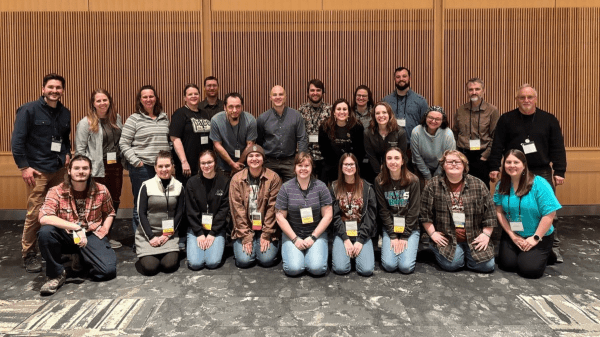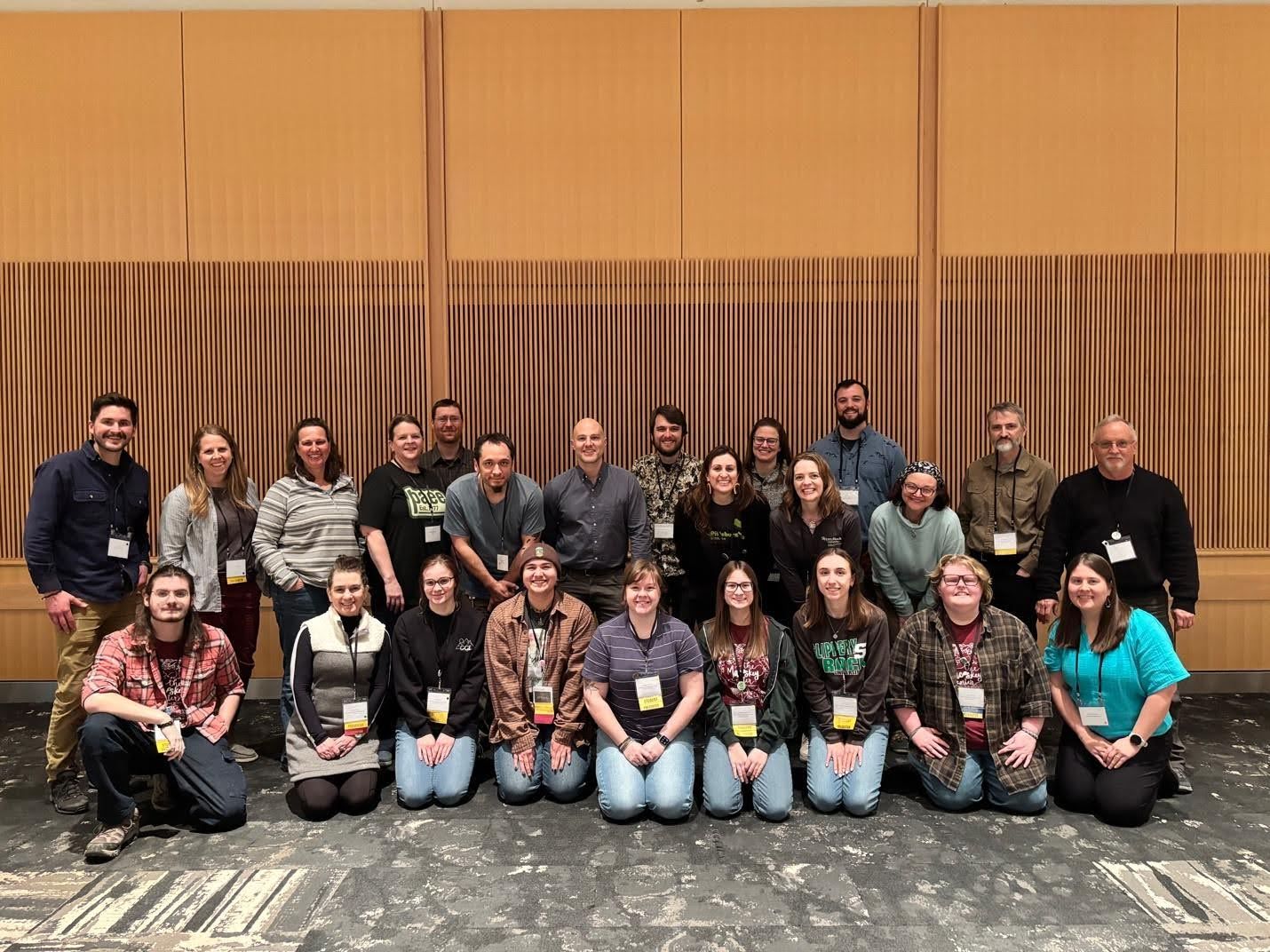Slippery Rock University’s Journey to NAAEE Accreditation

Program Overview
Slippery Rock University’s (SRU) Master of Education in Environmental Education (EE) degree is a 30-credit-hour program that is offered exclusively online. It is designed to facilitate upward mobility in the field by providing students with the skills and experiences needed to excel as environmental educators in formal and nonformal settings. Prior to 2014, SRU’s EE program was offered as an on-campus program that included some online classes. On-campus courses were suffering from low enrollment, and the online program grew because it was not limited to local students. At that point, the EE program transitioned to be offered fully online.
Our students include a range of K–12 educators teaching various subjects in formal settings to nonformal EE practitioners working for public agencies, zoos, aquariums, or nature centers. While most of our students are based in the mid-Atlantic region, our program draws students from all corners of the United States and globe. Our students represent EE professionals at all stages of their careers. They are united in their passion to incorporate EE into their work in a more meaningful way that inspires participants to become environmentally engaged global citizens. The students bring their own unique interests and skill sets to the online learning environment, and this creates a rich environment in which we can learn from one another. Our K–12 educators have represented a vast array of primary disciplines in their teaching, ranging from art to math to science to English and beyond. We even have a wood shop teacher enrolled in our program currently. This diversity underscores the idea that the environment is for everyone, and environmental education should weave across subjects in order to achieve maximum effectiveness.
Why Accreditation?
We decided to pursue NAAEE accreditation in 2017. Several program faculty were already active in NAAEE and the corresponding state affiliate organization, Pennsylvania Association of Environmental Educators (PAEE). The current program was already well-aligned with the NAAEE Guidelines for Excellence. The accreditation process provided an opportunity for us to work together more intentionally to tease apart this alignment and understand how the courses and corresponding assignments in the program could enhance one another and better support student learning. The Guidelines for Excellence helped us to give more structure to the assignments and courses and to ensure that all faculty shared common goals in teaching by emphasizing and reinforcing the six themes. Two faculty members also began regularly attending NAAEE and PAEE conferences with students at this point in 2017. We developed our self-study packet and successfully achieved NAAEE accreditation in 2020.
Benefits of Accreditation
There are several tangible benefits to accreditation that we have experienced at SRU.
- Accreditation has helped us to recruit high-quality students to our program. According to Brandi Mortimer, director of Graduate Admissions at SRU, “In my opinion, accreditation holds the seal of approval and there is value in enrolling in a program that has been approved by a regional or national accrediting body. Accredited programs must meet all of the rigorous requirement standards to achieve accreditation.” We have confirmed these sentiments anecdotally from students and prospective students—they report that they chose or were considering our program due in part to our NAAEE accreditation status.
- Accreditation has helped our program to be favorably viewed by university staff and administrators who might be less familiar with the professional discipline of environmental education by ensuring that the program is high quality and adheres to standards of practice in the field. Pursuing accreditation also aligned with SRU’s strategic plan. Samantha Kelly, SRU’s Assessment and Accreditation coordinator, stated that “the investment of resources necessary to earn and maintain programmatic accreditation represents SRU’s commitment to academic discovery and growth. NAAEE accreditation of SRU’s Environmental Education graduate program provides students (prospective and current), employers, and the broader community the assurance that our program is committed to academic excellence and best practices in environmental education.”
- NAAEE’s accreditation was affordable. As a state-owned, regional teaching institution, we must be wise stewards of our financial resources to ensure that decisions are both fiscally responsible and benefit students. While some accreditation processes require a large financial investment from the university in the form of funding site visits for external reviewers or paying application fees, NAAEE’s accreditation was affordable for us because it relied mostly on the human capital of existing faculty who were committed to making it happen as well as reviewers who were not paid any additional stipends funded by the applying institution.
Accreditation has also helped our students pursue excellence in the field after leaving SRU. This is extremely important to us as an institution that strives to create lifelong learners, and it also aligns with the accreditation theme that relates to professional development. Lisa Marini, one of our recent alumni, shared that “Learning about NAAEE and its Guidelines for Excellence prepared me to introduce that resource to my EE internship host—University of Maryland Extension’s Maryland Master Naturalist Program. They were interested in evaluating the effectiveness and relevance of their training handbook for new Master Naturalists, and I used the guidelines in my work on that project in Spring 2022. They built on those recommendations and have now published a new handbook, which will be launched in early June.”
Final Reflections
As one of the first universities to achieve NAAEE’s accreditation, we will be pursuing re-accreditation within the next few years. We are excited to engage in ongoing discussion and reflection on where we’ve been and where we’re heading. We look forward to identifying new ways to help our students connect with NAAEE and the many professional development and learning resources it offers to professionals in the field. As our alumni base of individuals who have completed the program since we achieved accreditation grows, we plan to maintain our accreditation to ensure that our program is helping students creatively and proactively meet the ever-changing needs of the field.

SRU Environmental Education students and alumni at the 2025 PAEE conference in Erie, PA. Photo credit: Becky Thomas
Join eePRO today and be a part of the conversation!
Comment and connect with fellow professionals in environmental education. Join eePRO >

